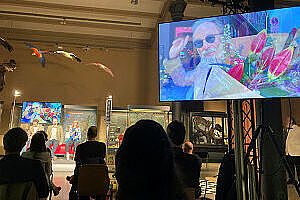In complex and threatening situations such as the Covid-19 pandemic, it would be great to have reliable advice from authorities that provide unambiguous answers: This is the situation, and this is what you have to do. More than anything, however, we want to hear that everything will be all right. Conspiracy theories claim to have the solutions to problems, which is why they thrive in times of crisis. Science, on the other hand, comes across as being aloof and unable to provide definitive answers. And so it is that scientists suddenly find themselves being criticized as unreliable advisors and “lockdown orchestrators” because they keep revising their assessment of the situation and adding footnotes. The goal of conspiracy theorists is to be right, whatever the cost, whereas science, by its very approach, is characterized by self-doubt and the continued scrutiny of its findings. In the search for facts and truth, scientists constantly challenge any contradictions found concerning their hypotheses. This can be very tiring. In times of crisis, people want clear and simple messages.
Despite being considerably more complicated and tedious, the scientific method is the only way to gain real, reliable knowledge. And anyone with insight into the world of science will come to appreciate the struggle involved in conducting research.
To provide such insight to as many people as possible, the Paul-Drude-Institut für Festkörperelektronik (PDI) has for years been looking at ways to communicate the idea and methodology of knowledge generation, i.e., science transfer – in addition to knowledge transfer, which involves communicating the scientifically generated content. In the process, PDI continually takes a particular interest in gaining access to members of the public who have nothing to do with science. To this end, PDI produced a prototype of the science show “Jetzt sprechen die Blumen” (Now the flowers are talking) as part of Berlin Science Week 2021 to highlight what makes scientists so enthusiastic about doing research. The Leibniz Institute of Freshwater Ecology and Inland Fisheries (IGB), the Leibniz-Institut für Kristallzüchtung (IKZ) and the Max Delbrück Center for Molecular Medicine (MDC) were each tasked with producing a short film about their research, based on a flower that had been assigned to them. Each institute was given a day for filming; a cameraman, who also took care of the editing and sound, was at hand to assist them. The institutes then competed against each other, showcasing their clips in a live show in the Polar Bear Room of the Museum of Natural History on the Berlin Science Week Campus. The live audience and those listening in to the livestream chose the winning film.
The idea to have advertising icon Friedrich Liechtenstein co-host the show with PDI’s Dr. Carsten Hucho was one way to attract an audience beyond the science-curious few. The show started off as a fun competition. But it soon developed into a deeper discussion of what drives the scientists to do research, their goals, successes and frustrations, and the question: Why do I want to pass on my knowledge? The three institutes produced clips that delighted the audience in different ways. In the end, MDC won the competition with its highly professional film and amazing lead actor. The film is being screened on the science façade of the Paul-Drude-Institut.
Carsten Hucho


